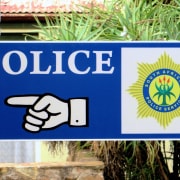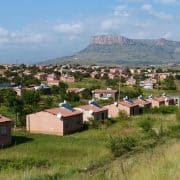|
Getting your Trinity Audio player ready...
|
The tenth edition of the Global Corruption Barometer (GCB) – Africa, released on African Anti-Corruption Day by Transparency International in partnership with Afrobarometer, reveals that 64% of South Africans surveyed think that corruption increased in the previous 12 months. The survey was conducted between end July and September 2018.
Of the 47 000 citizens surveyed in 35 African countries, more than half believe corruption is getting worse in their country, while 59% think their government is doing badly at tackling corruption. In South Africa, a staggering 70% believe that the government is not doing enough to tackle corruption.
Overall, the police service is considered the most corrupt institution, with a global average of 47% of people believing that most or all police are corrupt; in South Africa, this figure rises to 49%.
As in the 2015 edition of the GCB for Africa, the police consistently exhibit the highest bribery rate across the continent. In South Africa 19% of the respondents using police services reported having paid a bribe to the police, up from 3% recorded in 2015. A recent Corruption Watch report, Corruption in Uniform, highlights the alarming levels of corruption in the policing sector in South Africa.
South Africans also think that local government officials are highly corrupt (45%), followed by government officials and members of Parliament, both at 44%. In addition, 37% believe that most or all business executives are corrupt.
Although those South Africans surveyed generally think that NGOs and religious leaders are less corrupt, it is worth noting that 30% of South Africans surveyed were concerned about corruption in the NGO sector.
On a more positive note, 57% of South Africans surveyed believe that ordinary people can make a difference in the fight against corruption.
David Lewis, executive director of Corruption Watch, commented: ‘While the surveys were undertaken too early to constitute a definitive public judgment on the performance of the Ramaphosa administration, it is clear that the South Africans surveyed, like their counterparts in the rest of the continent, believe that their governments are not doing enough to combat corruption. Indeed, they believe that their public institutions, including key oversight bodies like Parliament and the law enforcement agencies, notably the police, are among the most corrupt. Impunity will rule unless these institutions are cleaned.”
This underlines the organisation’s concern with the presence of several thoroughly corrupt parliamentarians, Lewis added, and it vindicates Corruption Watch’s focus on tackling corruption in the criminal justice institutions.
The GCB is the largest, most detailed survey of citizen views on corruption and bribery in Africa. According to the report, the range of corruption challenges that African citizens face is complex and multifaceted, requiring fundamental and systemic changes.
The report findings show that across Africa, more than 25% of people who accessed public services such as health care and education paid a bribe in the previous year, which is the equivalent of approximately 130-million people. The profile of people paying bribes varies according to circumstance and vulnerability. Overall, men are slightly more likely to pay a bribe than women, while the poorest are twice as likely to pay a bribe as the richest people. It is also young people aged 18-34 who are more inclined to pay a bribe than people aged 55 and over.
There is also a focus on the significant role played by non-African actors in instigating corruption in Africa, which frequently results in resources being diverted from essential services. These actors are predominantly represented by foreign companies who have made a practice of paying bribes to public officials in order to gain advantage during bidding or procurement processes, to secure overpriced deals and contracts.
The report includes recommendations for African and international governments to step up their anti-corruption initiatives and commitments, to reduce the impact of corruption on the lives of ordinary citizens. These include recommendations to:
- Investigate, prosecute and sanction all reported cases of corruption in public and private sectors including allegations of bribery of foreign government officials by developed country multinational corporations;
- Develop minimum standards and guidelines for ethical procurement practices throughout the continent;
- Adopt open contracting practices to ensure transparency;
- Create mechanisms for citizens to report corruption and strengthen whistleblower protection to ensure that people can report without fear of reprisal;
- Enable media and civil society to hold governments accountable;
- Support political party funding transparency; and
- Allow cross border co-operation to combat corruption.
The report carries a further message for business leaders and company boards, including multinational companies operating in Africa, to implement the highest international anti-corruption and anti-money laundering standards.
Contact:
Patience Mkosana Cell: 072 992 8380 E-mail: patiencem@corruptionwatch.org.za








